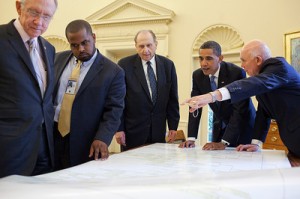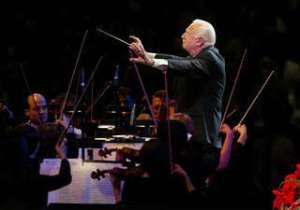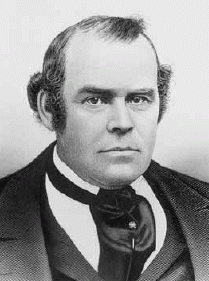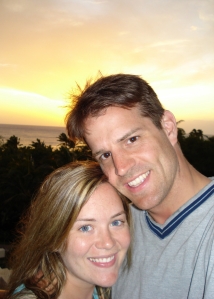From now on, this blog address is no longer used. Please go to the same blog at this new address where all therevious items are on it. I will use the new address now.
Please go to this address. Thank you!
From now on, this blog address is no longer used. Please go to the same blog at this new address where all therevious items are on it. I will use the new address now.
Please go to this address. Thank you!
Posted in Uncategorized | Leave a Comment »
One of my favorite scriptures is found in Luke 4. Luke has spent his first three chapters telling us of the marvelous births of John the Baptist and Jesus of Nazareth, the Savior’s childhood and has written of the baptism of Jesus, of His 40 days of temptation, and of His early teachings in Galilee .
The event which I love begins when the Savior comes to Nazareth “where he had been brought up.” Jesus by custom went to the synagogue on the Sabbath.
There He stood up to read, and the ministers gave Him the book of Isaiah. He opened the book (or scroll) to what is in our Old Testament Isaiah 61 and read
The Spirit of the Lord is upon me, because he hath anointed me to preach the gospel to the poor; he hath sent me to heal the brokenhearted, to preach deliverance to the captives, and recovering of sight to the blind, to set at liberty them that are bruised, To preach the acceptable year of the Lord. (Luke 4:18-19 compare with Isaiah 61:1-2).
The Savior then returned the book to the minister and, by custom, sat down.
The eyes of all in the synagogue, we are told, “were fastened on him.”
He announced, “This day is this scripture fulfilled in your ears.”
Other things He said, and the crowd, in anger, rose up, cast Him out of the building and tried to toss him over a steep cliff, “But he passing through the midst of them went his way.”
This experience in the Nazarene church must have been wonderful to some of those in attendance for they “wondered at the gracious words which proceedeth out of his mouth” even though as the Savior had pointed out to them, “No prophet is accepted in his own country.”
The Savior’s earthly mission including the great atonement was ahead of Him. Like He told Joseph Smith,“Thy days are known, and thy years shall not be numbered less; therefore, fear not what man can do, for God shall be with you forever and ever.” (Doctrine and Covenants 122:9)
Posted in Autumn Leaves | Leave a Comment »
Two recent news events show us the importance of family records and genealogy to world figures: the president of the United States and a famous news correspondent Walter Cronkite who recently died. Both men were moved by the gift to them of their family history.
President Obama.
Church leaders recently presented a five volume history of his ancestors to President Obama during a visit of President Monson and Elder Oaks in the Oval Office The presentation was reported in the Church News and also by many newspapers.
Here is the report from the Washington Times of July 20, 2009:
President Obama on Monday hosted at the White House the leader of the Mormon church, who presented the president with detailed volumes of Mr. Obama’s family history.
Obama said he enjoyed the meeting and was grateful for the genealogical records, which he said he would read through with his daughters, Malia and Sasha.
“It’s something our family will treasure for years to come,” Mr. Obama said in a statement.
Thomas Monson, president of the Church of Jesus Christ of Latter-day Saints, and Elder Dallin Oaks, chairman of the LDS Church genealogical committee, met with Mr. Obama. Senate Majority Leader Harry Reid, Nevada Democrat and a Mormon, arranged and attended the meeting.
White House aides said Mormon leaders traditionally have met with newly elected presidents, presenting them with genealogical records of their family history. The Utah-based church has compiled some of the world’s most extensive and detailed genealogical files.
A source said the church presented Mr. Obama with five large leather-bound volumes that go back through generations of the president’s family. Mr. Obama’s father was born in Kenya. His mother, Stanley Ann Dunham, was from Kansas.

President Barack Obama meets with (from left) Senator Harry Reid, Joshua DuBois, Director of the White House Office for Faith-Based and Neighborhood Partnerships, Church President Thomas S. Monson and Elder Dallin H. Oaks in the Oval Office, July 20, 2009. During the meeting they looked at a five volume genealogy prepared by the Church's Family History Committee. Here they are examining a huge pedigree chart.Walter Cronkite Conducting the Mormon Tabernacle Choir
Walter Cronkite
The announcement of his Cronkite’s death reminded us of his visit to Salt Lake City in 2002 to serve as narrator for the annual Mormon Tabernacle Choir Christmas concert. At the time he was presented a nearly foot-wide volume chronicling the lives of his ancestors.which brought tears to his eyes. Craig Jessup, the choir director, said, “He was very touched.”
A recent report of that visit to Church leaders is revealing:
Here is part of the Deseret News Report of July 21, 2009:
In 2002, Cronkite came to Salt Lake City to serve as narrator for the annual Mormon Tabernacle Choir Christmas concert. Like other guest performers, he was given an audience with the First Presidency of The Church of Jesus Christ of Latter-day Saints — President Gordon B. Hinckley and his counselors, President Thomas S. Monson and President James E. Faust. In that room, there was the collected wisdom of the ages — 335 years in all that day.
“How old are you?” Cronkite asked at one point
“Older than you,” President Hinckley said with a wink.
They continued to chat, and then Cronkite turned serious. Here it was, the moment when America’s anchor — the rock of the country, the man who reported and saw us through the John F. Kennedy and Martin Luther King assassinations and Vietnam and Civil Rights Movement and the tumultuous ’70s — finally let down his guard and revealed his creeping fear and skepticism.
“I’ve always been a man of optimism,” he began. “I have always thought that ultimately things would get better and better, but I must say I am beginning to have my doubts.”
Jessop also told of a later comment Cronkite made to him:
“Mr. Jessop,” he said, “I’m not a religious man in the traditional sense of the word. I don’t attend church on Sunday, although I grew up a Methodist in Missouri. But I have felt closer to my God this weekend than I have ever felt. There is something quite remarkable here.”
One highlight of Cronkite’s visit was conducting the choir. Jessup said, “One of the top experiences in my professional life was standing in the wings watching Walter Cronkite conduct the Hallelujah chorus. He was beaming like a child.”

Walter Cronkite Conducting the Mormon Tabernacle Choir
Posted in Autumn Leaves | 1 Comment »
In the mission field at most of our meetings we always repeated the Standard of Truth. We called it “The Wentworth Letter.” Actually the Wentworth Letter is a much larger document, and in my mind, one of the most fascinating items we have in the literature of the Church. Recently in priesthood meeting we studied this document, which appears in full in our priesthood and Relief Society manuals.
Of the letter the Prophet said, “At the request of Mr. John Wentworth, . . . I have written the following sketch of the rise, progress, persecution, and faith of the Latter-day Saints of which I have the honor, under God, of being the founder.”
While it never was used by Wentworth as intended, it was published in the Times and Seasons in 1842 and contains, as I see it, three major remarkable sections. First is the Prophet’s account of his First Vision (not the one printed in the Pearl of Great Price) with subsequent accounts of the Book of Mormon, and the persecutions and progress of the Saints, and then the Standard of Truth itself, and finally the first publication of the Articles of Faith.
The remarkable Standard of Truth was introduced by the Prophet as follows:
“Persecution has not stopped the progress of truth, but has only added fuel to the flame, it has spread with increasing rapidity. Proud of the cause which they have espoused, and conscious of our innocence, and of the truth of their system, amidst calumny and reproach, have the Elders of this Church gone forth, and planted the Gospel in almost every state in the Union; it has penetrated our cities, it has spread over our villages, and has caused thousands of our intelligent, noble, and patriotic citizens to obey its divine mandates, and be governed by its sacred truths. It has also spread into England, Ireland, Scotland, and Wales, where, in the year 1840, a few of our missionaries were sent, and over five thousand joined the Standard of Truth; there are numbers now joining in every land. “
Then comes the great statement which has bolstered missionaries from the very beginning, the Standard of Truth:
Our missionaries are going forth to different nations, and in Germany, Palestine, New Holland [Australia], the East Indies, and other places, the Standard of Truth has been erected; no unhallowed hand can stop the work from progressing; persecutions may rage, mobs may combine, armies may assemble, calumny may defame, but the truth of God will go forth boldly, nobly, and independent, till it has penetrated every continent, visited every clime, swept every country, and sounded in every ear, till the purposes of God shall be accomplished, and the Great Jehovah shall say the work is done.
We were always proud that our mission, in Australia called “New Holland” was included in the early regions covered by the missionaries. Over the years, of course, the gospel has spread far and wide and will continue to do so as stated in the Standard of Truth.
Posted in Uncategorized | Leave a Comment »
Several years ago (1995), President Gordon B. Hinckley, then a counselor in the First Presidency was in London, England being interviewed by a reporter from the British Broadcasting Company who asked him, “How do you expect people to listen to these callow youth?”
The reporter’s term callow meant immature, inexperienced, lacking sophistication.
Said President Hinckley, “ I replied to the reporter with a smile, ‘Callow youth? It is with these missionaries today as it was with Timothy in the days of Paul. It was Paul who wrote to his young companion, saying, Let no man despise thy youth; but be thou an example of the believers, in word, in conversation, in charity, in spirit, in faith, in purity’ (1 Tim. 4:12).
“The remarkable thing is that people do receive them and listen to them. They are wholesome. They are bright, they are alert, they are upstanding. They are clean looking, and people quickly develop confidence in them.”
President Hinckley then addressed the conference audience:
“Callow youth? Yes, they are lacking in sophistication. What a great blessing this is. They carry no element of deception. They speak with no element of sophistry. They speak out of their hearts, with personal conviction. Each is a servant of the living God, an ambassador of the Lord Jesus Christ. Their power comes not of their learning in the things of the world. Their power comes of faith, and prayer, and humility. As we have been reminded, the work is not easy. It has never been easy. Long ago Jeremiah said that the Lord would gather His people one of a city and two of a family and bring them to Zion and feed them with pastors after His own heart (see Jer. 3:14–15). In terms of the individual missionary, the harvest is not great in most instances, but in the aggregate it becomes tremendous. The work demands courage, it demands effort, it demands dedication, it demands the humility to get on one’s knees and ask the Lord for help and direction.”
End of quotes.
To me, one of the greatest miracles of the Church is the missionary. I have had a number of experiences over the years with our missionaries. One of them as a returned missionary taught and baptized me. The Lord blesses them beyond their capacity in their ministry. And in their post-mission life they are the strength of the Church as they earn their living, rear their family, and build the Church.
REFERENCE: Gordon B. Hinckley, “Of Missions, Temples, and Stewardship,” Ensign, Nov 1995, pages 51 ff
Posted in Autumn Leaves | Leave a Comment »

Parley P. Pratt
“Stu-boy, Stu-boy, Take Him!”
Missionary Escapes Large Bull Dog
This has been a favorite story of mine ever since I read PPP’s Autobiography after I joined the Church many years ago (in the 1945s). I thought you would enjoy reading it (perhaps again.)
Using his resources as a clever missionary Elder Parley P. Pratt was probably one of the first missionaries in this dispensation to be troubled by a dog.
Pratt, a 23-year-old convert, had been appointed in October 1830, by the Prophet Joseph Smith to travel with three other elders (including Oliver Cowdery) to Indian territory. Following a meeting with Native Americans they met Sidney Rigdon, then a devout Reformed Baptist, and gave him a copy of the Book of Mormon.
Subsequent events resulted in the conversion of Rigdon and about a thousand others. This was in and near Kirtland, Ohio.
Pratt and his group were preaching when an officer presented Pratt with a warrant for his arrest for “a very frivolous charge.” There was a trial that evening with “false witnesses,” and Pratt was ordered to prison or a sum of money he did not have.
He was locked in a public house overnight, the prison being several miles away.
In the morning an officer (Mr. Peabody) took him to breakfast ready to conduct him to prison.
His companions stopped by and he told them to go ahead, that he would join them later.
Here are Pratt’s own words on what happened next:
“After sitting awhile by the fire in charge of the officer, I requested to step out. I walked out into the public square accompanied by him.
“Said I, ‘Mr. Peabody, are you good at a race?’ ‘No,’ said he, ‘but my big bull dog is, and he has been trained to assist me in my office these several years; he will take any man down at my bidding.’

“’Well, Mr. Peabody, you compelled me to go a mile, I have gone with you two miles. You have given me an opportunity to preach, sing, and have also entertained me with lodging and breakfast. I must now go on my journey; if you are good at a race you can accompany me. I thank you for all your kindness–good day, sir.’
“I then started on my journey, while he stood amazed and not able to step one foot before the other. Seeing this, I halted, turned to him and again invited him to a race. He still stood amazed. I then renewed my exertions, and soon increased my speed to something like that of a deer.
“He did not awake from his astonishment sufficiently to start in pursuit till I had gained, perhaps, two hundred yards. I had already leaped a fence, and was making my way through a field to the forest on the right of the road. He now came hallowing after me, and shouting to his dog to seize me. The dog, being one of the largest I ever saw, came close on my footsteps with all his fury; the officer behind still in pursuit, clapping his hands and hallooing, ‘Stu-boy, Stu-boy–take him–watch–lay hold of him, I say–down with him,’ and pointing his finger in the direction I was running.
“The dog was fast overtaking me, and in the act of leaping upon me, when, quick as lightning, the thought struck me, to assist the officer, in sending the dog with all fury to the forest a little distance before me. I pointed my finger in that direction, clapped my hands, and shouted in imitation of the officer. The dog hastened past me with redoubled speed towards the forest; being urged by the officer and myself, and both of us running in the same direction.
“Gaining the forest, I soon lost sight of the officer and dog, and have not seen them since.”
NOTES: From Chapter 7 of Pratt’s Autobiography. Parley Parker Pratt was born in 1807 in Burlington, New York. While traveling in Western New York he came across a Book of Mormon owned by a Baptist deacon. He traveled to Palmyra, New York, met the Prophet’s brother Hyrum and was baptized by Oliver Cowdery in September, 1830. He baptized his younger brother Orson, then met Joseph Smith and went on the mission described above.
He was an original member of the Quorum of the Twelve Apostles, ordained at age 27 in 1835.
While returning from a horseback missionary trip to the Southern States he was shot and killed at age 50 in 1857 and is buried in Alma, Arkansas, where a large monument has been erected. (See http://en.wikipedia.org/wiki/Parley_P._Pratt) for his many accomplishments in the Church and details of his death.
Posted in Autumn Leaves | 1 Comment »
The first time I became aware of a poetry excerpt by William Wordsworth describing the pre-mortal life I was in a poetry class at UCLA. I was so impressed by it that I asked the professor what it meant (mainly to see what he thought about it.) His answer was that it was Wordsworth’s description of eternity
Indeed!
Here is the excerpt (5th stanza)
Our birth is but a sleep and a forgetting:
The Soul that rises with us, our life’s Star,
Hath had elsewhere its setting
And cometh from afar;
Not in entire forgetfulness,
And not in utter nakedness,
But trailing clouds of glory do we come
From God, who is our home:
Heaven lies about us in our infancy!
Shades of the prison-house begin to close
Upon the growing Boy,
But he beholds the light, and whence it flows,
He sees it in his joy;
The Youth, who daily farther from the east
Must travel, still is Nature’s priest,
And by the vision splendid
Is on his way attended;
At length the Man perceives it die away,
And fade into the light of common day.
Sparks notes on the Internet reads: “Wordsworth proclaims that human life is merely ‘a sleep and a forgetting’–that human beings dwell in a purer, more glorious realm before they enter the earth. “Heaven,” he says, ‘lies about us in our infancy!” As children, we still retain some memory of that place, which causes our experience of the earth to be suffused with its magic–but as the baby passes through boyhood and young adulthood and into manhood, he sees that magic die.”
No wonder the Lord taught the young prophet Joseph (age 26) the importance of childhood education in the Church. I recently came across this revelation:
And again, you shall be ordained to assist my servant Oliver Cowdery to do the work of printing, and of selecting and writing books for schools in this church, that little children also may receive instruction before me as is pleasing unto me. (Doctrine and Covenants 55:4)
We also remember the admonition to parents:
And again, inasmuch as parents have children in Zion, or in any of her stakes which are organized, that teach them not to understand the doctrine of repentance, faith in Christ the Son of the living God, and of baptism and the gift of the Holy Ghost by the laying on of the hands, when eight years old, the sin be upon the heads of the parents. (D&C 65:25)
Church leaders have often quoted this stanza. What a beautiful explanation of the pre-mortal life!
Posted in Autumn Leaves | 1 Comment »

Matt and Erin
We had a wonderful Independence Day. Larry and Marie, Matt, Erin and Ellie, and Stephen, Jonelle and Carter came. Larry cooked sausages on our outside barbeque (first time we used it) and Marie cooked pancakes and eggs. We also had watermelon. Larry brought a tomato plant and placed it in the hanging (upside down) tomato plant container that son Steve gave me for Fathers’ Day.
We had a nice visit.
Posted in Family | 1 Comment »
On the day the Church was organized the Prophet Joseph received this revelation:
“BEHOLD, there shall be a record kept among you . . . .”

I have always felt this was such a significant principle to be taught the prophet so early. In fact, every time I set apart any one to be a clerk or a secretary, I quoted these words.
How was Joseph to know the importance of keeping records? Of course, he had the examples of the writers of the Book of Mormon who had been so meticulous in writing things down. Nevertheless this was a whole new experience to him, to organize a church, and the early instruction given (beyond Section 20) was to keep a record.
The prophet kept this commandment seriously. He was careful to see that all the revelations were kept track of and published, and he constantly kept scribes to write down historic events. Local Church newspapers were constantly publishing records and revelations.
As proof of his diligence in this regard, a project underway today (Joseph Smith Papers. See http://josephsmithpapers.org/Default.htm ) will eventually result in over 30 volumes of revelations, translations, correspondence, declarations, discourses, journals and histories.
To keep track of all the records the Church has, a new Church History Library has been built at 15 East North Temple Street in Salt Lake City.
The Salt Lake Tribune said of the building, “The library houses the extensive collection of manuscripts, photographs, journals and other historical records for the 179-year-old church. Among the collection’s more valuable items are the personal journals and writings of Joseph Smith Jr., who founded the church in 1830. It’s also the home of the church history department.” It added, “Sophisticated temperature controls will allow the collection to be stored and precisely preserved — most storage facilities are kept at 55 degrees Fahrenheit and 35 percent relative humidity.” (June 22, 2009.)
Much can be said about the records in this library, those (genealogy) records in the nearby Family History Library (and its branches), those in the granite vaults in Little Cottonwood Canyon (see below*) and the countless journals kept by our ancestors and ourselves.
All this from a revelation in April 1830!
*The vaults at Little Cottonwood Canyon: “Master microfilms of genealogical records are stored in this climate-controlled vault carved out of the mountain. The vault preserves almost 2.4 million microfilms and nearly 1 million microfiche acquired over the decades. That represents more than 3 billion pages of family history records, the largest collection of its kind in the world.” (http://www.ancestry.com/learn/library/article.aspx?article=11011)
I am happy to say that I am among those indexing the records in the vault. In coming years the digitized records of the microfilms, etc, will be available on-line to anyone wanting to see them.
(The key life events of billions of people are being preserved and shared through the efforts of people like you. Using our online indexing system, volunteers from around the world are able to quickly and easily transcribe the records—all from the convenience of their homes. The indexes are then posted for FREE at familysearch.org.
(Millions of rolls of microfilm provide census, vital, probate, and church records from over 100 countries are involved. Governments, churches, societies, and commercial companies are also working to make more records available.) (See familysearch.org)
Behold, a record is being kept!
Posted in Autumn Leaves | Leave a Comment »
Pre-email days
Years ago when I was going to college we had a professor who occasionally would read humorous items to us, having nothing to do with the class. These items were the predicessors to the modern emails that come out from time to time–more frequently than we would like. In fact they are so frequent that we often delete them without reading. “Wayside Chapel” has made the e-mail rounds very often, so you probably have seen it. If not, you might enjoy it. I really thought it was funny and found it some place on the web so I would have a copy. Here it is:
The Wayside Chapel
An English schoolteacher, was in Switzerland and looking for a room to rent for when she would begin her teaching there the following fall. She asked the schoolmaster if he would recommend any. He took her to see several rooms, and when everything was settled she returned home to make final preparations for the move. When she arrived home, the thought suddenly occurred to her that she had not seen a Water Closet (toilet) around the place. She immediately wrote a note to the schoolmaster asking him if there was a “W.C.” near the room.
The schoolmaster was a poor master of English so he asked the parish priest about the meaning of the letters “W.C.” and the only solution they could come up with for the letters was “Wayside Chapel”. The schoolmaster then wrote the following note to the English lady seeking a “W.C.” with her room.
Dear Madam: I take great comfort in informing you that a “W.C.” is situated nine miles from the house in the corner of a beautiful grove of pine trees, surrounded by lovely grounds. It is capable of holding 229 people, and it is open on Sundays and Thursdays only.
As there are a great many people expected during the summer months, I would suggest that you come early, although there is usually plenty of standing room. This is an unfortunate situation, particularly if you are in the habit of going regularly.
You will no doubt be glad to hear that a good many bring their lunch and make a day of it, while others, who can’t afford to go by car, arrive just in time. I would especially advise your ladyship to go on Thursdays when there is an organ accompanist. The acoustics are excellent and even the most delicate sounds can be heard everywhere.
It may interest you to know that my daughter was married in the “W.C.” and it was there that she met her husband. I can remember the rush there was for seats. There were ten people to a seat usually reserved for one, and it was wonderful to see the expression on their faces.
The newest attraction is a bell, donated by a wealthy resident of the district, which rings every time a person enters.
A bazaar is to be held to raise money for plush seats for all, since the people believe it is a long felt want.
My wife is rather delicate so she can’t go regularly: it is almost a year since she went last. Naturally it pains her not to be able to go more often. I shall be delighted to reserve the best seat for you, if you wish, where you will be seen by all. For the children there is a special time so that they will not disturb the elders.
Hoping to have been of some service to you, I remain,
Sincerely, The Schoolmaster
Posted in Autumn Leaves | Leave a Comment »